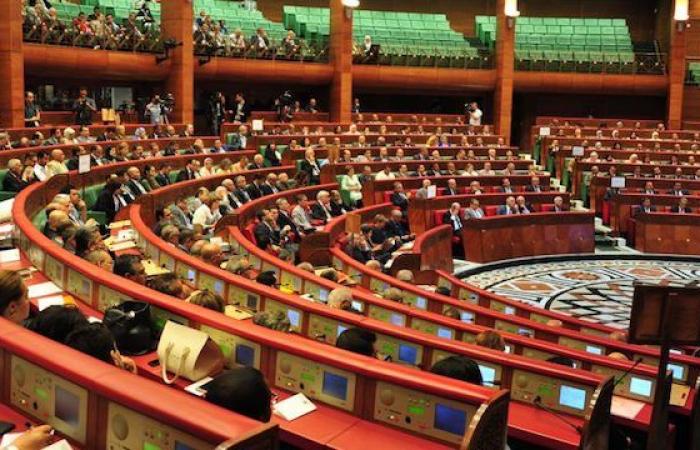Who would have thought that honey would provoke, in 2024, the controversy of the season in the Moroccan Parliament! For several weeks, the term “honey” was at the top of trends in the country. A look back at an absurd story…
When the government presents the finance bill to the elected representatives of the Nation (end of October), the text does not include any measure directly or indirectly affecting beekeeping. A sector that is struggling to recover since the destruction of nearly 70% of the hives a few years ago.
Until then, the executive is white as snow, even if he generally has a good back. The sequence of events will lead him into a controversy, which he has no need of. Here’s what’s going to happen and which will cause a lot of discussion.
Members of the Committee on Finance and Economic Development in the House of Representatives introduce an amendment relating to a virtual elimination of import duties on honey.
Read also | The essence of the letter sent by the CGEM to its members to welcome the tax progress of PLF-2025
The proposed modification would reduce them from 40 to 2.5% for bulk honey packaged in containers of more than 20 kilograms. The deputies have no idea that their action will be followed by a real storm.
A controversy that no one saw coming
Passed in committee by majority, the amendment made waves during the plenary session devoted to the discussion of the first part of the PLFin mid-November. The MPs responsible are accused of legislating in favor of a comrade, who would monopolize 80% of honey imports.
The charge is carried by Abdellah Bouanou, leader of the PJD group. The bomb is dropped. And it has become a matter of public opinion, around which the most improbable speculations are woven. The majority is vilified for favoring a deputy belonging to the party of the head of government (RNI).
While saluting the opposition MP for having made the revelation, the president of the National Union of Beekeeping Professionals in Morocco, Hassan Benbal, then reminded everyone of the virtue of balance. At first glance, he considers it inconceivable that a single operator could monopolize 80% of the market, when there are several importers of bulk honey.
Read also | Faced with the surge in meat prices, the government increases quotas exempt from import duties
“I know of companies bigger than that of the MP in question (without naming him). Is it possible that all these importers only share 20%, despite their size and the diversity of their activities?” he asked.
Stop politicization
According to the same interlocutor, it would even be naive to think that a single operator is behind this whole story. In this type of situation, he emphasizes, it is the members of the corporation who lobby to defend their interests.
Far from opposing imports, professional beekeeping associations have rejected outright the politicization of the issue and its exploitation in the trench warfare between the majority and the opposition. Moreover, a good number of operators practice both production and import.
The authors of the controversial amendment protest against the accusation of conflict of interest and defend their good faith. Their objective is, according to them, to allow honey importers to benefit from the exemptions granted to other sectors of activity, such as olive oil, meats or powdered milk. As they say, the road to hell is paved with good intentions!
Read also | Government suspends import duties on olive oil and meats
Even the head of the MP group, Driss Sentissi, although an opposition figure, rejects the allegations of conflict of interest “which make it difficult to legislate”. According to the same MP, the question is whether national production is sufficient and, if this is not the case, then imports should be encouraged.
A sector in danger
The Minister Delegate in charge of the Budget, Fouzi Lekjaâ, subsequently denied knowing the name of any of the 22 importers, nor their political labels. During parliamentary discussions, he raised no objections to bulk honey imports, provided they were packaged locally.
In mid-November, the House of Representatives adopted, at first reading, the finance bill, as amended in Committee. This means that the battle for honey will continue among the Advisors.
Beekeepers will keep up the pressure to protect thousands of cooperatives. In Morocco, honey is sold for between 38 and 40 dirhams per kilo. The price of imported honey – some 3,800 tonnes annually – varies between 10 and 15 dirhams, to which are added customs duties of 17 dirhams. In the event of their revision, these rights would only be 1 or 2 dirhams.
The CGEM blocks
As the voice of private operators, the General Confederation of Moroccan Enterprises (CGEM) will activate its group to House of Councilorswho will table an amendment canceling the measure adopted by the deputies.
Read also | Why the government is increasing subsidies for wheat imports
During a meeting of the Committee on Finance, Planning and Economic Development, Fouzi Lekjaâ will validate the employers’ proposal, supported by all the Councilors.
The CGEM considers that maintaining high customs duties is necessary to “respond to the constraints and challenges facing the sector and prevent imported honey, sold at competitive prices, from dominating the national market”.
The finance bill will finally be adopted on November 6, in the absence of the measure at the origin of all this controversy. End of the honey saga, for now. Because importers, many of whom are also beekeepers, are always on the lookout…






